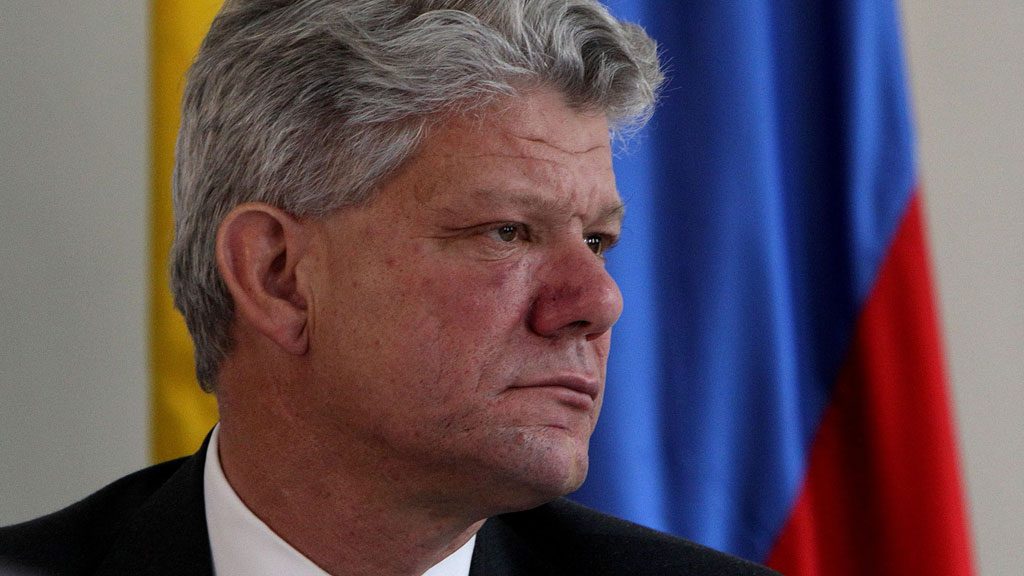The United Nations’ representative in Colombia said Wednesday that the Colombian government and rebel group FARC should “rethink” proceeding with the peace talks while fighting continues.
Fabrizio Hochschild, the UN’s resident coordinator in Colombia, questioned the utility of continuing the dialogue in Cuba while the groups are actively fighting each other, stating that continued hostilities are undermining public confidence in the peace process that’s been in progress in Havana, Cuba since December 2012.
The conflictCausesInequalityPolitical exclusionWeak, corrupt stateViolence aggravatorsDrug traffickingInternational actorsFact sheetPeace talksProfileFARC |
In spite of efforts to deescalate the armed conflict, an April FARC attack caused a chain reaction that, over the past weeks, instead led to a major flare-up of violence in rural areas.
“The time has come to rethink whether the policy intended for a [peace] process that would last a year is still the best for a process that has lasted for three years and looks to be prolonged further,” explained Hochschild.
His views echo those of the international guarantors of the peace process, Norway and Cuba, who have strongly suggested that the peace talks can only advance if a bilateral cease fire is imposed and confidence is injected anew into a faltering dialogue.
Guarantors urge Colombia government and FARC to agree to bilateral ceasefire
Violence broke out between the government and the FARC in May after the FARC ended a self-imposed unilateral cease fire that began in December, citing a government air strike against the guerrillas as the reason.
FARC suspends unilateral ceasefire after military air strike kills at least 26 guerrillas
Since the end of the cease fire, the guerrilla group has mounted numerous attacks against the state, most notably an attack against the port city of Buenaventura in western Colombia that left residents without power.
Despite the resumption of hostilities, representatives of the European Union have urged the parties to continue the dialogue, afraid that an interruption will result in the dismantling of the agreements thus far reached between the two parties that have been at war since 1964.
EU urges Colombia to continue with peace process despite recent flare ups
The two parties have thus far agreed on a comprehensive agricultural development policy as well as a framework for political participation of of the rebels post-conflict. Points of contention that remain include transitional justice and a plan for a final end of the conflict.
Sources
ONU llama a ‘repensar’ los diálogos de paz en medio del conflicto


